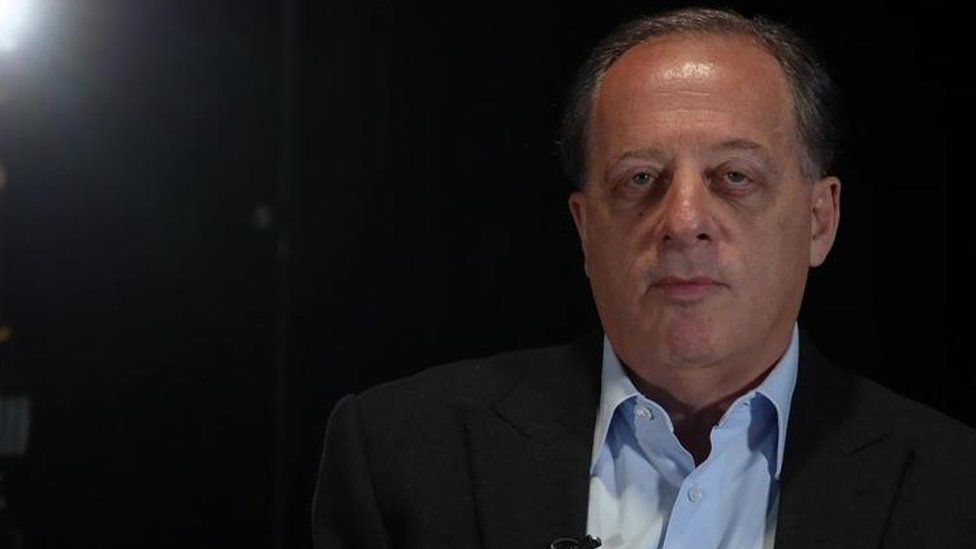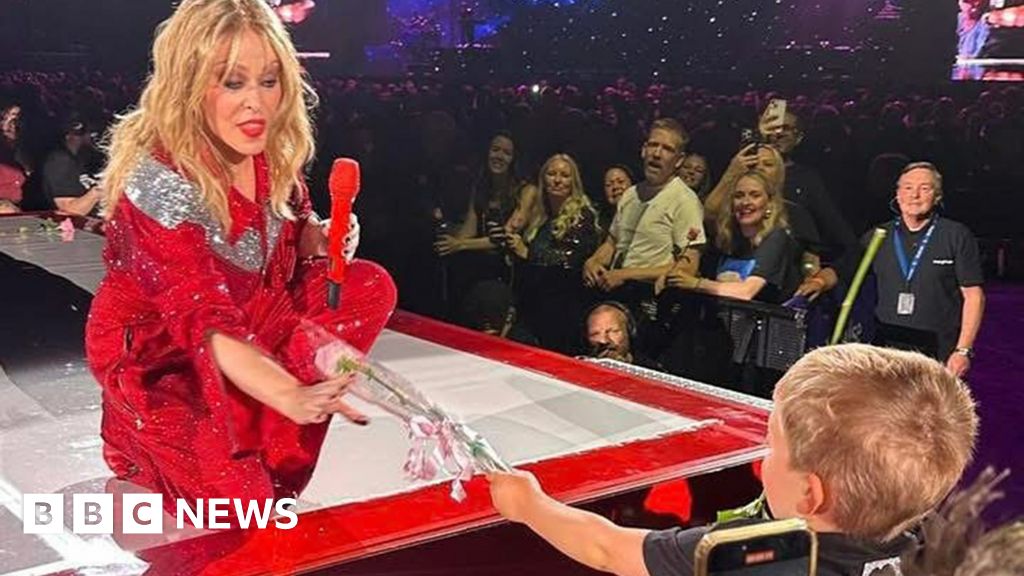ARTICLE AD BOX

Pressure is growing on BBC chairman Richard Sharp to resign amid the Gary Lineker impartiality row.
Liberal Democrat leader Sir Ed Davey said the presenter's suspension "has shown failure at the top".
Mr Sharp's appointment is being investigated over his relationship with Boris Johnson. He denies wrongdoing.
But ex-BBC head Greg Dyke said the Sharp allegations had "helped fuel the perception" the corporation bowed to government pressure on Lineker.
Fresh questions are being asked about Mr Sharp's position in light of another impartiality row involving the Match of the Day presenter.
Mr Sharp is facing criticism for his role in facilitating an £800,000 loan for then-prime minister Boris Johnson.
An MPs' committee said Mr Sharp made "significant errors of judgement" in doing so while applying for the BBC job. He insists he got the job on merit.
Mr Sharp has previously admitted the affair had embarrassed the BBC but insisted he had "acted in good faith to ensure that the rules were followed".
Lineker's suspension for his criticism of the language used around the government's asylum policy and likening its rhetoric to Nazi Germany triggered an impromptu walkout by BBC Sport staff that has taken TV and radio coverage off air.
Lib Dem leader Sir Ed saying the government had "systematically attacked and undermined the independence of our BBC" and that the chairman's position was "totally untenable".
"We need leadership at the BBC that upholds our proud British values and can withstand today's consistently turbulent politics and Conservative bullying tactics", he added.
Mr Dyke, who led the BBC between 2000 and 2004, said Lineker's suspension was a "mistake" and "undermined its own credibility".
The decision to suspend Lineker was signed off by director general Tim Davie who, unlike Mr Sharp, is not appointed by the government.
Mr Sharp has previously accepted he set up a meeting between the Cabinet Office and Sam Blyth, a Canadian multi-millionaire and distant cousin of Mr Johnson who had offered to help him financially.
The Cabinet Secretary Simon Case instructed Mr Sharp to have no further involvement in the loan discussions as it could raise conflict of interest issues in light of his BBC application.
WATCH: Gary Lineker tweet row... in under 90 seconds
Mr Sharp, who has insisted he got the job on merit, did not disclose his involvement in arranging the meeting when he was vetted ahead of his appointment.
The process is being investigated by the Commissioner for Public Appointments and the BBC Board has said it will review his conflicts of interest without giving a timeline for when it will be completed.
BBC culture and media editor Katie Razzall makes the point that the organisation has no say in its chairman's appointment and that as a board member, Mr Sharp does not have a say in editorial matters.
The chairman is in charge of upholding and protecting the BBC's independence and ensuring the BBC fulfils its mission to inform, educate and entertain, among other things.
Mr Sharp was named as the government's preferred candidate for the BBC chairmanship in January 2021 and at the time the Commons Digital, Culture, Media and Sport (DCMS) Committee backed his appointment.
The government's choice is ultimately decided by the prime minister - at the time Mr Johnson - on the advice of the culture secretary, who is in turn advised by a panel.
As he is appointed by the government, Mr Sharp can only be sacked by the secretary of state or resign, he cannot be axed by the BBC.
Making a comparison between Lineker and Mr Sharp, Labour's shadow culture secretary Lucy Powell told BBC Breakfast the "same cries of impartiality were completely absent" when Mr Sharp "failed to disclose" his relationship with Mr Johnson.
Former journalist Baroness Wheatcroft, a crossbench peer who sits on the Lords Communications and Digital Committee, added the BBC should "call for the suspension" of "clearly political" Mr Sharp after the Lineker row.
She told BBC Radio 4's Today programme: "The problem is that the BBC has guidelines, but it doesn't apply them fairly. Guidelines only work if they are applied right across the board within the scope of the guidelines, and clearly the BBC has failed on that."
Former head of BBC TV News and director of sport, Roger Mosey, also called for Mr Sharp to go as he said the chairman had "damaged the BBC's credibility".
He wrote on Twitter: "Ideally, Lineker should stay within clear, agreed guidelines. And the BBC should send out its executives to be interviewed and explain how they intend to resolve this crisis."
Prof Steven Barnett, professor of communications at the University of Westminster, told BBC News he had supported Mr Sharp's appointment but now thought he should go.
"It is clear it is now a big question mark over the whole of the BBC's output and commitment to impartiality," he says.
Downing Street previously said it was reserving judgement on Mr Sharp's appointment until investigations are completed.
The BBC has approached Mr Sharp for comment.

 2 years ago
33
2 years ago
33








 English (US) ·
English (US) ·